There is this story of a Nigerian who decided to open a clinic and put a sign outside which reads: “Get treatment for $25 and if not cured, get $100 in return.”
An American saw this as a great opportunity to earn easy $100 and goes to the clinic where he told the Nigerian, “I have lost my sense of taste, do you have treatment for me?”
Asking the man to sit down, the Nigerian beckoned on the woman in the room, “Nurse, please bring medicine from box 7 and put three drops in the patient’s mouth.”
With the drug administered, the American exclaimed: “Ugh…this is gasoline.”
Advertisement
“Congrats” the Nigerian told him, “your sense of taste is restored. Give me $25.”
The annoyed American left after paying the bill but he was back a few days later, intent on winning $100 so he could recover his $25 with profit. “I have lost my memory, I can no longer remember anything,” he told the Nigerian who again beckoned on the Nurse: “Please, bring medicine from box 7 and put three drops in the patient’s mouth.”
The American looked at what the Nurse wanted to administer and said to her: “This is gasoline. You gave this to me last time for restoring my taste.”
Advertisement
“Congratulations”, said the Nigerian, “You got your memory back. Give me $25”.
Fuming with anger, the American pays and left, only to come back two weeks later, determined to secure $100. “My eyesight has become very weak such that I hardly see again. Can you restore my sight?”
Looking perplexed, the Nigerian said: “Well, I don’t have any medicine for that, so you have won” as he brought out a note from his pocket and handed to the American: “Now, take your $100.”
Staring at the cash, the American said: “But this is a $10 bill; not $100.”
Advertisement
Smiling, the Nigerian told him: “Congrats, your eyesight is restored. Give me $25.”
The moral of the story, one of the several you will find on the internet about our country, is that Nigerians are very smart people and you see the evidence of that everywhere. But the question remains: if our people are as smart as we claim, and I sincerely believe we are, how come our nation remains like this? How can supposedly smart people be doing dumb things most of the time?
Distinguished ladies and gentlemen, please join me in giving a round of applause to Pastor Poju Oyemade who conceived this vision and has kept it going year after year. But I reserve my biggest appreciation for the distinguished ladies and gentlemen who are here today, not to be entertained but rather so we can engage on the future of our country. This is my fifth time on ‘The Platform’ and I am always amazed by the number of people who gather here every year which all goes to show we care for our country. It is even all the more remarkable in a season such as this.
Let me explain that. While I am quite aware of what many families are going through today as a result of the economic challenges we all face, the gravity of the situation hit me very hard last Sunday morning. In my church, we have a separate place of worship for teenagers which I head. So last Sunday, when the teenager who took the testimonies, a girl of 16, noticed that some of her peers were not ready to testify, she said: “If you guys don’t want to testify, I will thank God for providing for my parents and for keeping all of us alive.”
Advertisement
If she had stopped there, it would still have been okay but she continued: “A few days ago in our estate, one man told his wife and children that he was going to use the toilet in the house and after several hours when they couldn’t find him, they broke into the toilet that had been locked, only to find his body dangling from a rope. He left a note that he had to take his life because he could no longer provide for his family.”
While suicide is no option in difficult moments, the fact also remains that we all have our breaking points and the economic situation in the country is already pushing many into their breaking points. However, the message we are sending through a gathering like this, inspired by Pastor Poju, has been well captured by a central character in the late Prof Chinua Achebe’s classic, ‘Things Fall Apart’, who said that “a man who calls his kinsmen to a feast does not do so to redeem them from starving. They all have food in their own houses. When we gather together in the moonlit village ground, it is not because of the moon. Every man can see it in his own compound. We come together because it is good for kinsmen to do so” in a bid to enjoy the power of togetherness. He then concluded: “Let us smile not because we don’t have problems, but because we are stronger than the problems.”
Advertisement
Distinguished ladies and gentlemen, no matter what we may be going through today as a nation, I am of the strongest conviction that we are greater than the challenges we face. And we shall overcome. But I am also worried by some of the choices we make. At a time of serious economic crisis, everybody is singing the song of diversification even when we are still trapped in the idea of luggage economy, a term I will soon explain.
Okay, we want to diversify to agriculture but what is driving the campaign is no more than stomach infrastructure. And even when we talk agriculture, it is still basically within the realm of luggage and not knowledge: Fertilizer, importation of grass from Brazil etc. That explains why we cannot feed ourselves, essentially because we still rely on old models either for pastoralists or those who till the land.
Advertisement
The second area we want to diversify into is solid minerals. We are told practically everyday that buried in all our villages are precious gems that we must now begin to look for and with that, luck and chance remain the pathway to the future. And the last area we are diversifying into is the same commodity that brought us to the current pass: oil and gas. That is why we are now expending huge sums of money searching for hydrocarbons everywhere.
Unfortunately, the only place that holds a promise to the future is one we have cynically neglected. We no longer invest in education, science and technology. In fact, at a time Dollars were being allocated in Aso Rock, funding the education of Nigerian children abroad was publicly declared as not one of the priority areas. Political office holders, who themselves have their children abroad, were giving hypocritical sermons, making it look as if it was a crime for other Nigerians to want the best education for their own children.
Advertisement
But now to the question: What exactly do I mean by luggage economy? Simply defined, a luggage economy would be one that follows the normal curve of ‘heavy’ industrialisation and cargo based international trade. It is a model whose developmental impact depends on a trickle down flow and the provision of conventional employment.
In the world of today, luggage economy can at best help with basic infrastructural development. It cannot lead to a democratisation of wealth and a speedy creation of a new class of wealth creators. For sure, there is room for such luggagism at the apex of economic activity but there is a limit to how that model can make billionaires of citizens not born into wealth or who do not have access to illicit funds.
On the contrary, knowledge economy places emphasis on the power of human imagination to use knowhow and know why to create business opportunities through new entrepreneurship models. In this new economy, the son of a Yoruba carpenter like me, or the daughter of a Fulani herdsman or perhaps the cousin of an Ijaw fisherman who excels in school and acquires the proficiency in IT, basic engineering or entrepreneurship can break through all known barriers to emerge very quickly with a product or service that the mass market wants. In the process, they achieve in a few years what the purveyors of the luggage economy could not achieve in so many years both in terms of aggregate capital accumulation and net contribution to the GDP.
Before going further, let me say quickly that given the circumstance of our country today, we need a mix of both luggage economy and knowledge economy but my worry is the current fixation with the former without much consideration for the latter. Yes, we need people to grow food, we need people to manufacture things and we need people to buy and sell. But we are not even doing any of those things well and education accounts mostly for why. With greater application of knowledge, we can do things much smarter, much more efficiently, and much more productively.
If you look at the main engines of America’s old luggage economy like DuPont, Bechtel and others, you will discover that none of them is anywhere close to say Microsoft in spite of the sheer acreage of real estate and quantum of iron, steel and concrete with which they litter the American landscape. So obviously, one system is creating more wealth with less manual effort than the other while at the same time impacting lives on universal scale. If you take the total net worth of the founders/drivers of Google, Apple, Microsoft, Facebook, Dell, Yahoo, Oracle, Amazon, Tesla, etc, you will be shocked that each of them is many times richer than the total external reserves of all the West African countries combined!
If you look at nations, you may also discover that Japan and Germany have depended less on extractive resources like minerals and more on products of human ingenuity like engineering even though they laid their engineering infrastructure in the era of luggage economy–iron and steel and concrete infrastructure. Today, they are earning their wealth mostly through knowledge based economic activity–the export of manufactured products and IT.
Therefore, if we must develop as a nation, our mentality must shift from luggage to knowledge but how can such happen when the first requirement to register a university in Nigeria is for the investor to acquire 100 hectares of land? Yes, you got me right: It is in our law! So, even for a sector like education, the emphasis is still on luggage rather than on knowledge.
Distinguished ladies and gentlemen, having made a distinction between luggage economy and knowledge economy, let me now go to the question posed by Pastor Poju: What is the economic value of Nigeria? Put differently, if Nigeria were for sale today, what aspects of our country would interest prospective investors?
Let me say without any equivocation that the strongest economic value of our country today is the ingenuity of our young people who must be given the opportunity to champion their own recovery through innovation and creativity. If we ever needed any proof that our young people are the MOST valuable assets we have, the recent visit to Nigeria by Mark Zuckerberg, CEO and founder of the world’s most used social media platform, Facebook, was a testimony.
At Co-Creation Hub, AfriNolly, Andela and a host of other places Zuckerberg visited in Lagos, there is a new vista of hope for our young developers and engineers in the tech industry who are working in several Hubs across the country. The atmosphere has changed as it is now evident that Nigeria is a destination in Africa for venture capitalists in the industry. There is even more hope for young Nigerian developers, building solutions around all sectors of our economy, from transportation, to civic engagement, healthcare, sports and agriculture.
Therefore, it is sad, if not tragic, that the authorities still cannot understand that building the future is about developing solutions and apps that are capable of generating income and huge employment. I am aware that at Co-Creation Hub, Yaba, there is a yearly summer coding camp for children – developing localized applications and picking up new skills to better their future. What Bosun Tijani and Femi Longe started in 2011 is now becoming a goldmine before our very own eyes. Just about five years after, we now have BudgIT, Efiko, Mamalette, Autobox, Truppr and many are still coming up from that hub.
Looking at the model of Andela, co-founded by Iyinoluwa Aboyeji in 2014, it is incredible that in just two years, hundreds of developers have been trained through its fellowship scheme and boot camps. Iyinoluwa, a young Nigerian serial entrepreneur with several years of experience running social ventures in education technology and publishing, recently announced his exit from Andela to venture into a new startup. Such bold step can only be attributed to the kind of future we want to build, a future that is tied to providing knowledge-based solutions to practical problems.
To build the future, we need the strengths of young Nigerians like Tayo Oviosu, who co-founded Paga, a mobile payment business. The platform recently crossed a threshold of three million users, with over 800,000 of them active; and now, it has over 8,000 agents in 35 of 36 states in the country. With Paga, which now boasts over 200 employees, Nigerian customers can easily transfer money, purchase airtime credit, and pay bills with their cell phones. With Paga, Mobile-Money has become a reality in Nigeria through thinking ahead by some of our young nationals.
Distinguished ladies and gentlemen, we must build the future like Gossy Ukanwoke is already doing through the establishment of Nigeria’s first online university. Gossy has taken advantage of our country’s internet user’s base to establish Beni American University (BAU) with several faculties already recruited to provide on-site human capital development for businesses and flexibility of study for individuals.
Building the future is like what Chioma Agwuegbo is doing with her Abuja-based startup, Tech-Her, that is creating a community for young women working in and around technology, helping them to learn together and supporting one another. Tech-Her is committed to producing young female developers by connecting them to resources and business opportunities.
Another leading light in the growing tech-ecosystem in Nigeria is Mark Essien, the co-founder of Hotels NG, one of Nigeria’s go-to places for hotel bookings. Then you have Bankole Cardoso, founder and CEO of Easy Taxi Nigeria, which is making it easy for passengers to book taxis anywhere and anytime with the click of a button. Last year, I spoke about Bilikiss Adebiyi-Abiola, Co-Founder/CEO, Wecyclers Corporation. And then there is Jason Njoku, co-founder of IROKO TV, an online entertainment platform that targets audiences in Sub-Saharan African countries. This year, Jason secured $19 million in funding from French premium cable company, Canal+ and Kinnevik. Of course we have Affiong Williams, the young CEO of ReelFruit, who recently made the Forbes list of 30 under-30 entrepreneurs on the continent by using brain power to make agriculture an interesting and money-making venture for young people.
The future in agriculture for instance is to deliberately increase the value chain. That is what Fatima Oyia Ademoh, one of the final contestants chosen from about 800 young entrepreneurs from 18 African countries for a business ideas competition termed Agribiz4Africa, is doing today. Her Youth Agro Entrepreneur (YAE) initiative is an innovation which seeks to rebrand agriculture as a feasible, lucrative and honourable profession for young Nigerians.
Let me not forget Adetayo Bamiduro and Chinedu Azodoh, who co-founded Metro Africa Express (MAX), a logistics company that boasts of real time delivery of goods, including within chaotic cities like Lagos, using the power of technology and creative thinking. And finally, let me speak about a remarkable young man I admire so much. In the eighties, when I used to spend my holiday with my elder brother in Orile Iganmu, Lagos, there was this popular artiste called Ade Love, real name, Adeyemi Afolayan who hails from my state, Kwara. Even as young as I was at that time, I could see efforts and talents that were not well remunerated. That was luggage economy at work. But with knowledge, his son, Kunle Afolayan has taken the same craft to an unprecedented level, reaping bountifully in the process, all within a short period. I am an ardent fan of Kunle Afolayan because there is rigour and creativity in his works.
Distinguished ladies and gentlemen, are we ready to build the future? That is the question because if we are, we must demonstrate that in the way we manage our affairs and in our politics. We have all read and heard stories about how Singapore moved from third world to first world but what is hardly spoken about is the leadership recruitment process that places huge emphasis on knowledge. Currently, Singapore has a cabinet of 20: The Prime Minister, two deputy prime ministers and 17 cabinet ministers. Now, let me quickly run down the qualifications of these people.
I begin with the Prime Minister, Lee Hsieng Loong, who attended University of Cambridge where he graduated with a first class degree in mathematics and diploma in computer science (with distinction) after which he completed a Master of Public Administration at the Kennedy School of Government, Harvard University.
The first Deputy Prime Minister and Coordinating Minister for National Security, Teo Chee Hean, attended the University of Manchester Institute of Science and Technology, where he graduated with a First Class degree in electrical engineering and management science before obtaining a Master of Science degree (with distinction) in Computer science from Imperial College, London. He also capped it with a Master of Public Administration degree at the Kennedy School of Government, Harvard University.
The second Deputy Prime Minister and Coordinating Minister for Economic and Social Policies, Tharman Shanmugaratnam, attended the London School of Economics, where he earned a Bachelor degree in economics. He subsequently obtained another Master degree in the same discipline from the University of Cambridge and a Master in Public Administration from the Kennedy School of Government, Harvard University.
The Minister for Trade and Industry (in charge of Industry), S. Iswaran, attended the University of Adelaide and graduated with a First Class degree before obtaining a Master in Public Administration from the Kennedy School of Government, Harvard University. The Minister for Trade and Industry (in charge of Trade), Lim Hng Kiang, attended the University of Cambridge, bagging a degree in engineering before obtaining his Master of Public Administration degree at the Kennedy School of Government, Harvard University.
The Minister for Transport and Co-ordinating Minister for Infrastructure, Khaw Boon Wan, graduated with a First Class degree in Engineering and Commerce from the University of Newcastle in Australia where he eventually completed his doctorate. The Minister in the Prime Minister’s Office, Chan Chun Sing, attended the University of Cambridge, where he graduated with a First Class degree in Economics before attending the MIT Sloan School of Management. The Minister for Communications and Information, Yaacob Ibrahim, obtained a Doctor of Philosophy from Stanford University and a post doctorate degree at Cornell University.
The Minister for Manpower, Lim Swee Say, attended the Loughborough University, United Kingdom where he graduated with a first class degree in electronics, computer and systems engineering before earning a Master degree in Management at Stanford University. The Minister for National Development, Lawrence Wong, attended University of Wisconsin–Madison in the United States where he completed a Bachelor of Science degree in Economics before obtaining a Master of Arts degree in Economics at the University of Michigan–Ann Arbor, and another Master in Public Administration from the Kennedy School of Government, Harvard University.
The Minister for Defence, Ng Eng Hen, attended the medical school at the National University of Singapore, before going for his fellowship training in surgical oncology at the University of Texas MD Anderson Cancer Center in Houston. The Minister for Foreign Affairs, Vivian Balakrishnan chose a postgraduate specialisation in ophthalmology and became a Fellow of the Royal College of Surgeons of Edinburgh.
The Minister for Home Affairs and Law, K. Shanmugam, studied law at the National University of Singapore where he graduated with a First Class degree and top of his class. The Minister for Health, Gan Kim Yong, attended University of Cambridge, where he obtained both a Bachelor and Master degree in Electrical Engineering. The Minister for Finance, Heng Swee Keat, also attended University of Cambridge, where he obtained a Bachelor and Master Degrees in Economics before obtaining a Master of Public Administration from the Kennedy School of Government, Harvard University.
The Minister for the Environment and Water Resources, Masagos Zulkifli, graduated with a First Class degree in Engineering from Nanyang Technological University, a Master of Science (M.Sc.) in Electrical Engineering from the National University of Singapore and another Master of Business Administration (M.B.A.) from the University of Southern California. The Acting Minister for Education (Schools) and Senior Minister of State for Transport, Ng Chee Meng, obtained a Bachelor of Science in electrical engineering at the United States Air Force Academy before securing his Master of Arts in international relations from The Fletcher School of Law and Diplomacy at Tufts University.
The Minister for Culture, Community and Youth, Grace Fu Hai Yien, attended the National University of Singapore where she completed a Bachelor of Accountancy and a Master of Business Administration. The Minister for Social and Family Development, Tan Chuan-Jin, attended the London School of Economics for his first degree before attending King’s College for a Master of Arts degree in Defence Studies.
The Acting Minister for Education (Higher Education and Skills) and Senior Minister of State for Defence, Ong Ye Kung attended the London School of Economics where he obtained a first degree in Economics before completing a Master of Business Administration degree at the International Institute for Management Development in Switzerland.
The foregoing are the qualifications of the men and women leading Singapore today.
Distinguished ladies and gentlemen, I am not here to advertise for Harvard, LSE, Cambridge or any of those prestigious foreign universities or to say that they alone have solutions to problems. No, the point I am trying to make is that quality education matters and that point has been well underscored by the Prime Minister of Singapore who said most recently that those who lead a nation must first possess the ability to “grasp the issues to make correct decisions, or at least propose sound solutions”.
Singapore is such a success story today despite the fact that we were far ahead of them at independence. The per capita income of Singapore when Lee Kuan Yew took over was $400. He grew it to $50,000 by the time he left office. Today, the per capita income is $56,700, making it the 3rd richest country by per capita income only after Qatar and Luxemburg. And for the past ten years, Singapore has been number one on the World Bank Ease of Doing Business Index, essentially due to the quality of its leadership.
Incidentally, I have in recent weeks been involved in some educational initiatives. The first, for the second year, I am on the panel of Judges for the Nigerian Breweries Plc Maltina Teacher of the Year 2016, which entails marking the entries of teachers across the 36 states of the country and Abuja. The maiden edition last year was restricted to public schools in Nigeria but this year, the competition was open to all secondary schools, private or public. Yet, I must confess that it has been a rather depressing experience because if majority of those who are to impart knowledge to our children at secondary school level are themselves barely literate, then there is a problem.
Then, on Thursday, former Access Bank Managing Director, Mr. Aig Imoukhuede launched his knowledge-driven initiative that is essentially targeted at supporting citizens of Nigeria and Ghana “who are outstanding senior practitioners in the public sector and who have made a significant impact on policy issues through their direct work.” Under the Africa Initiative for Governance (AIG), Imoukhuede, who invited me into the Advisory Board along with six others, including President Olusegun Obasanjo who is our chair, will be offering, on an annual basis, five all-expenses paid scholarships and one Fellowship, beginning from next year, at the Blavatnic School of Government, University of Oxford.
The idea is that the Scholars and Fellows would return to their country, Nigeria or Ghana after the programmes at Oxford University, “informed by knowledge and understanding gained through their research into regional and global best practices to help shape and influence policy decisions” in their respective countries. Of course we may argue that such intervention is but a little drop but we also know that when you throw pebbles into a pond, the ripples will spread. Therefore, we need such little drops in our nation and our continent if we are ever to catch up with the rest of the world where the knowledge and ingenuity of the leadership cadre now make all the difference.
This now brings me to the final point as I begin to round up. My question is “Between Luggage Economy and Knowledge Economy: Which Way Nigeria?”
That is an answer only the leadership of our country can provide and that is also where the challenge is. In the Singapore story, the leadership selection process initiated by the late Lee Kuan Yew which has produced the cabinet of stars insisted on a meritocracy in every field. The political parties, the military, the police, etc, all had to be led by very well educated people. He believed in high western education and spent national resources to train that manpower. It became a tradition up to the present. The message is simple: Only a highly trained national leadership can carry the burden of development along enlightened lines.
Perhaps to appreciate what I am talking about, I encourage Nigerians to read the short but profound message, by Prime Minister Lee titled “Acquiring the tools to lead Asia forward”, where he explained the essence of educational preparation for leadership and what he learnt at Harvard Kennedy School. “I discovered how systematic and analytic thinking could clarify issues and suggest creative solutions to complex problems. But my lasting lesson was that in a dynamic and demanding environment, public officers need more thorough preparation and effective tools for governance, to formulate policy rigorously and in depth, to evaluate trade-offs and develop mitigation measures, and crucially to garner political and public support to turn ideas into results,” he wrote.
That is why I find it very disturbing when I hear Nigerians talk down on those who send their children to schools abroad. If they can afford it and the money is legitimate, it is something we should encourage, even as we reform our education at home. One does not disturb the other. If you check out the resumes of each of the young men and women I mentioned earlier, you will discover that most, if not all, of them schooled abroad. The real problem is that we have neglected public schools at practically all levels in Nigeria today and that is what we should deal with, not that it is wrong for other people to send their children abroad to school.
A check on the high enrolment of Chinese and South Korean students in US and European Ivy League universities will reveal that they have taken Lee Kuan Yew’s example and precepts to heart. In the case of Singapore, they went to the West to study and in the process, they transformed their educational system to become even better than those of the West. By the time Lee Kuan Yew left office, Singaporean kids were recording better scores in mathematics than their American and European counterparts even though they started off worse. Today, Western educationists are going on training in Singapore!
The point being underscored here is that we now live in the knowledge economy. The world has moved beyond the agrarian, industrial and information ages. Therefore, for us to compete in this new world, we must consciously create the conditions that will allow our people to become knowledge workers and knowledge entrepreneurs. Our young people, largely on their own, have shown that they are ready to be active players in and contributors to this age. How do we support them with the enabling environment? And if that is too difficult for us to do, how do we ensure we do not impede their progress? Most importantly, how do we ensure that we guarantee quality education to our young citizens across all strata while ensuring that our educational system adapts to the realities of the moment?
Those are some of the challenges we have to deal with. And we must begin by cultivating a conscious leadership grooming system. We need a pipeline for that. But even before then, it is also obvious that we are not putting our best to the job. We have well educated and well experienced people in our country, young men and women who have both the passion to serve and the right values. But we are not using them to run the most critical part of our national life which is government.
The challenge for Nigeria is to create a politics that enables the emergence of a culture that supports merit in the public arena. Lee Kwan Yew was able to institutionalize meritocracy because he had the ability to work together with his colleagues to refashion a new culture and expectations. How do we do it in Nigeria? Some have read the Singaporean example to mean that we need an authoritarian logic to create such a system. I disagree. I believe we can create a meritocratic system without necessarily changing our social structure. But that is an issue for another day.
Pastor Poju, distinguished ladies and gentlemen, in case I have been unable to convince the audience about the superiority of knowledge economy over luggage economy, let me end with a story told by Oliver Burkeman in “The Guardian Weekend” of 13th August, 2011, variants of which many of us must have seen before online. And here it goes: Following the breakdown of his factory’s production line, costing him millions per day, a business owner invites an expert who takes out a screwdriver, turns one screw and the factory cranks back to life. Presented with a bill for £10,000, the factory owner, who could not understand why the expert should ask for such an amount he considered outrageous, demanded a breakdown of the bill. The expert obliged: “For turning a screw: £1. For knowing which screw to turn: £9,999.”
With that, I hope my message is passed as to why it would serve our nation better to seek knowledge. Thank you very much for listening as I wish both my son, Oluwakorede, who is 13 today, and my country Nigeria that is 56, happy birthday.
Text of the presentation by Adeniyi at the 2016 edition of the annual ‘Platform Nigeria’, organized by Covenant Christian Church Lagos on 1st October, 2016.
3 comments
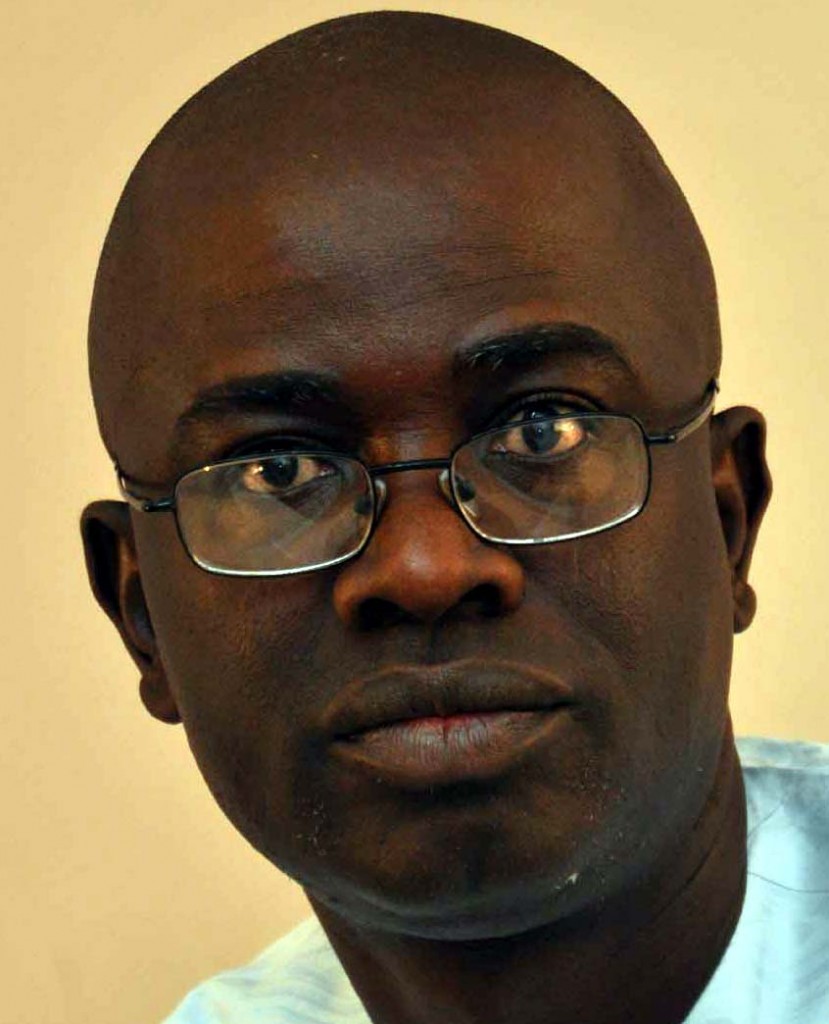
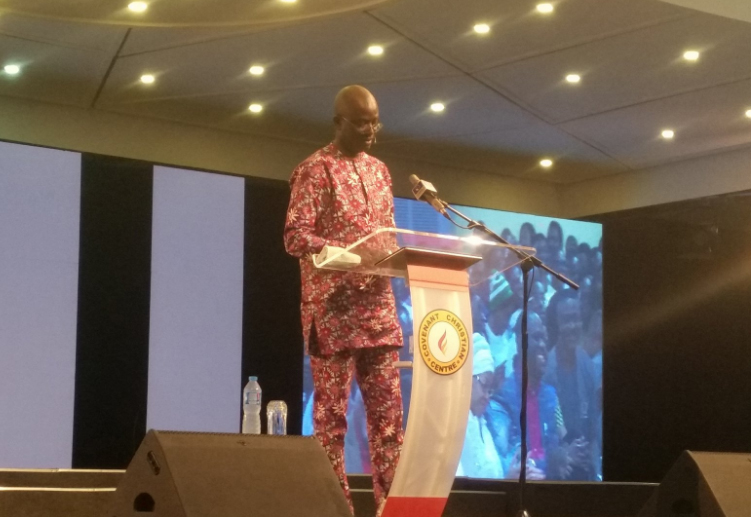

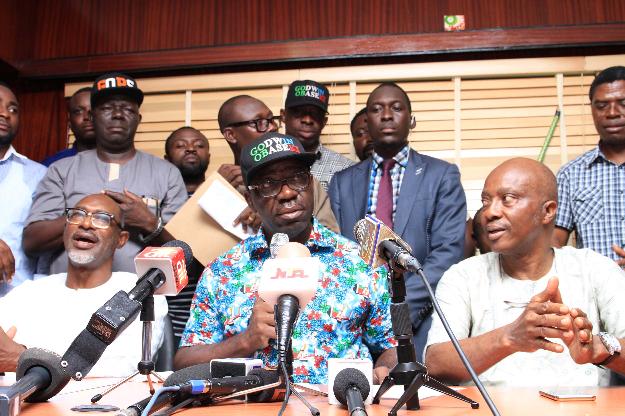
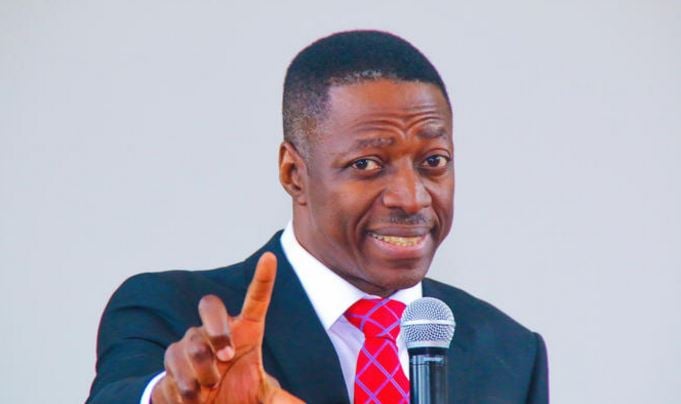
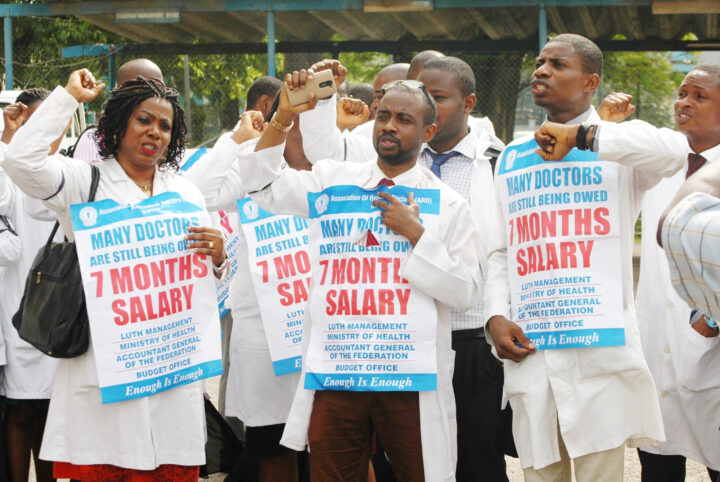
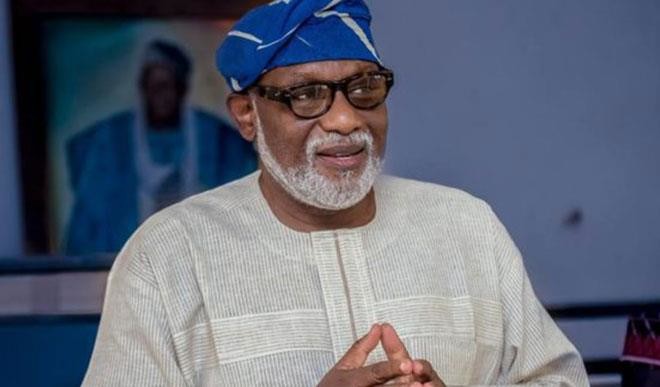
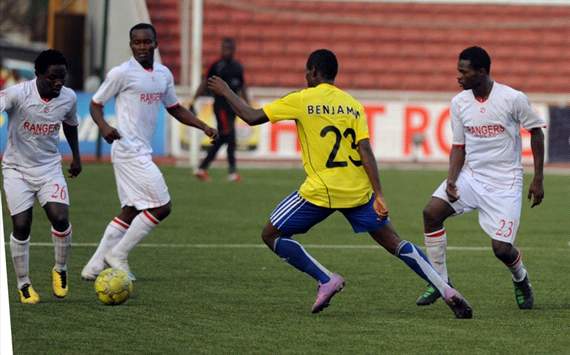
I doubt greed is the priciest commodity in Singapore as it is in Nigeria. And what is the place of ethnicity? Will education make any impact in these areas? What did the data say of Nigerians in these areas. If in doubt, play back political discuss of the last general election. Did the general discuss suggest a people who want progress or people who prefer to champion their ethnic groups above all else?
Yes education will, lack of education cripples the sense of reasoning. An unreasonable people hadly see’s beyond there noses, my point knowledge will definitely reduce ethnicity in our dear country I believe.
I quite understand where he’s coming from. Yet, I disagree with many of the substance of his presentation. Knowledge economy is taken out of context. Technology would be categorized under the luggage economy because he’s failed to identify the huge infrastructure behind technological breakthrough. Investing in apps and tech solutions isnt what Nigeria needs right now. Tech isnt wealth on its own- its a driver of already established infrastructure and facility. And if there is none already, tech will not come and do the miracle. Emerging economies need to play a ‘double down game’. Focus on how to deploy massively into the so called luggage economy and use tech to scale.